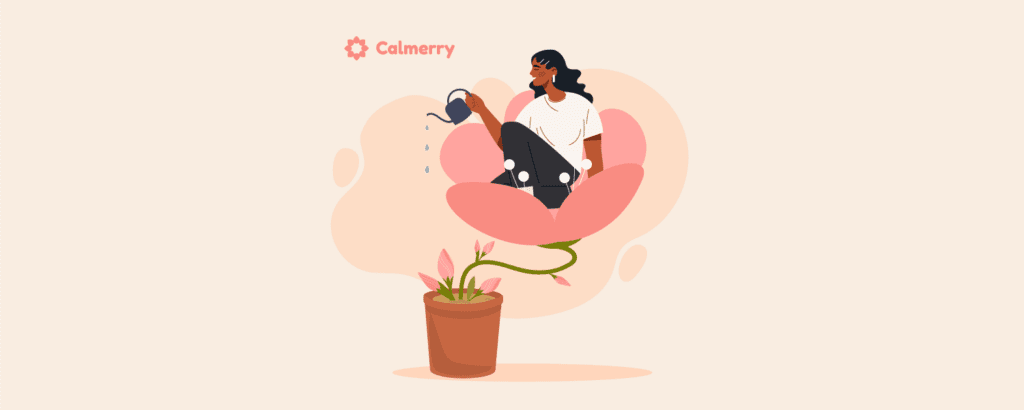10 Unhelpful Habits to Leave Behind This Year
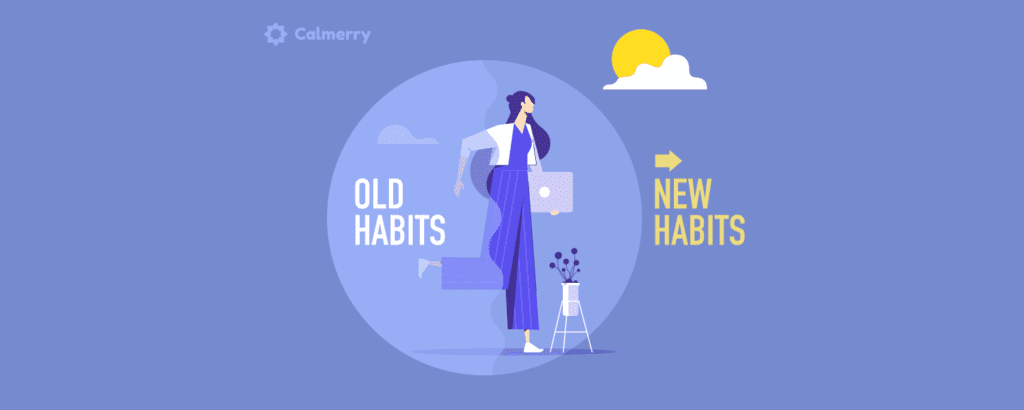
As this year is coming to an end, it’s nearly time to think about New Year’s resolutions. The most popular ones people set for themselves include losing weight, earning more money, travelling, and starting to go to the gym.
Unfortunately, things don’t always go as planned, and many fail to stick to their goals. The reasons vary, but in some cases, it could be the bad habits holding people back.
For example, comparing your progress to other people’s might decrease your motivation. And by being too perfectionistic, you might put too much pressure on yourself.
Here are 10 unhelpful habits everyone should quit and leave in 2022.
Bad habits examples you might relate to and should unlearn
A great step to start nurturing your well-being is recognizing what’s not serving you anymore and coming up with strategies on how to break the cycle of doing it every time. Making such positive changes can improve your mental health and help you develop new, healthier habits.
1. Spending too much time on social media
As technology progresses and new exciting apps come out every year, it’s not surprising that most people are glued to their phones. After all, the Internet allows us to save time and makes many daily tasks a lot easier.
The problem is that social media is addictive as it gives us a dopamine rush, the feel-good chemical that triggers our reward system. As a result, it’s easy to go down a rabbit hole.
Before you know it, a quick Google search after work might turn into social comparison, unhealthy procrastination, and “stalking” your ex on Instagram.
Since social media is such a big part of our lives, it might be difficult to recognize its negative influence at first. You can start by tracking how much time you spend plugged in and then gradually cut it down.
You’ll be surprised how much extra free time you’ll have on your hands when you decide to embrace digital detox. Additionally, studies show that it can reduce symptoms of anxiety, depression, and stress.
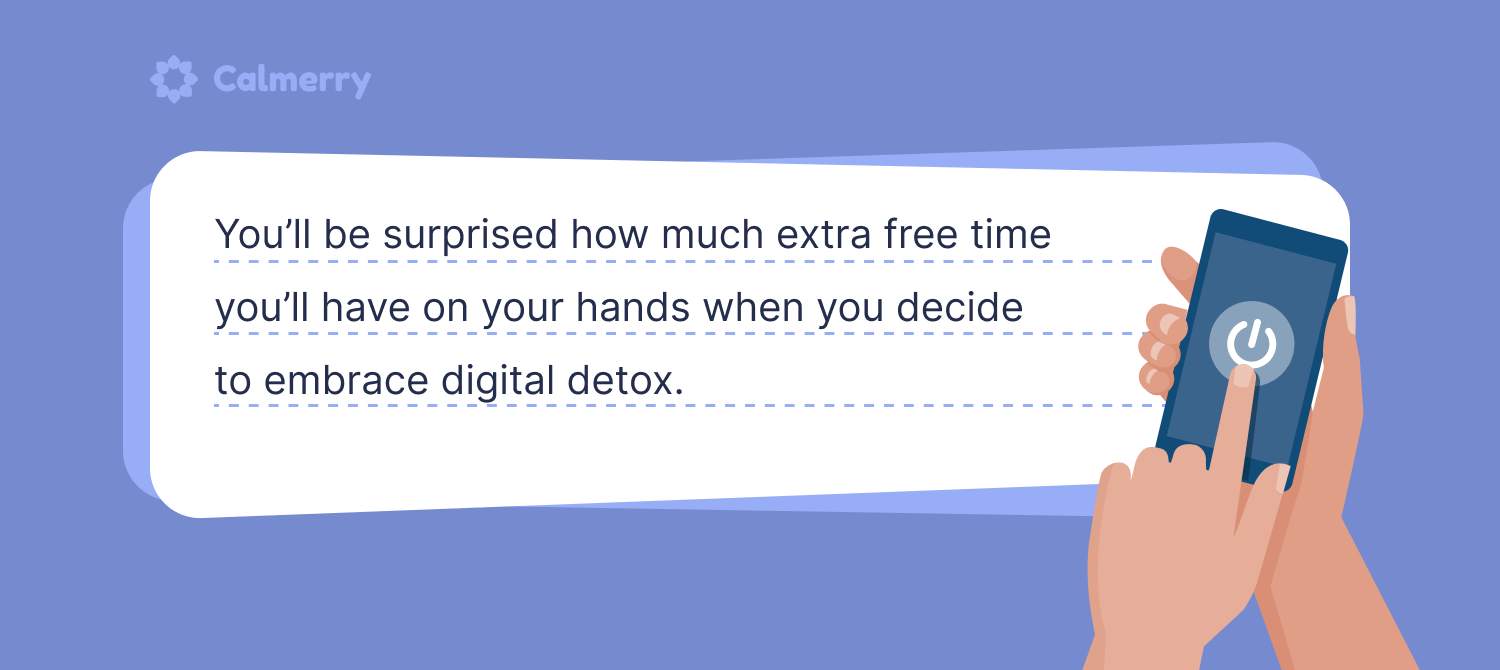
2. Using avoidance to cope
Whenever something bad happens in our lives, it’s tempting to ignore the pain and numb it with a distraction – whether watching Netflix or going for a run. And sometimes. it’s a good idea to step away and wait until the worst has passed.
However, many people refuse to process the distressing situation and continue using distractions to avoid thinking about the problem ever again.
Unfortunately, suppressing emotions won’t make them disappear and might mean they’ll come back with more force when you least expect it.
Using avoidance to cope is one of those bad habits that are hard to break. But once you learn how to face the unpleasant, your well-being will significantly improve.
3. Multitasking
Juggling many things at once seems like a great idea until your productivity drops, and you’re unable to stay in the moment.
How many times have you tried to relax after a busy day and realized you can’t stop feeling restless? Or worse, how often have you let your mind wander while driving a car?
When you multitask, your attention is divided, which means your performance suffers, and you’re more likely to make mistakes.
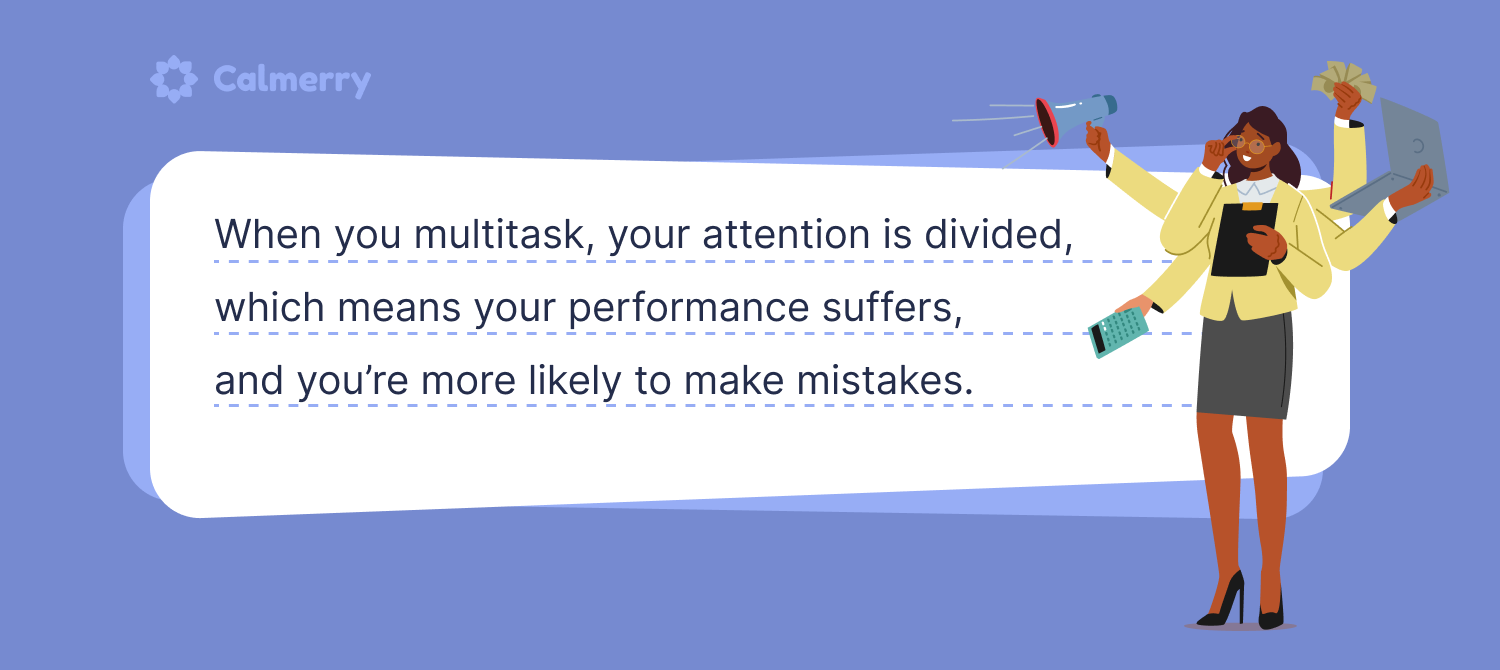
To learn how to be more conscious of what you’re doing, you should explore the concept of mindfulness – defined as an ability to be fully present, which translates into more efficiency and decreased stress.
One of the most popular ways to practice mindfulness is learning to focus on a given task by noticing how your hands move and the smells and sounds around you, which is quite the opposite of multitasking.
4. Focusing on the negatives
If you tend to focus on the negatives, the good news is that you aren’t alone. Our brains are hardwired to do so due to our survival instinct.
In the past, humans had to scan the environment for danger and pay attention to any potential threats to stay alive. While in this day and age, we’re unlikely to be attacked by a wild animal, old habits die hard – and we still tend to fixate on the negative.
People who focus on negative experiences might struggle to see positives, feel gratitude, and always anticipate things going wrong, which robs them of so much joy in life.
If you’ve ever felt nervous before a social event to the point of not enjoying it at all, or if your anxiety keeps you up at night, it may be a sign that this unhelpful habit needs to go.
When you learn to challenge your negative thoughts and become more optimistic, it’s almost like good things start to gravitate toward you a little more.
5. Being too hard on yourself
We all fail to show up on time or forget about an important appointment once in a while. But if you beat yourself up instead of learning from your mistakes, you might get into a habit of using negative self-talk, which can impact your self-esteem.
To start working on this negative habit today, try to be gentle with yourself. And remember that sometimes these things just happen, but you can always control how you respond to a setback.
As numerous studies have found, being self-compassionate is linked with better well-being: it can improve life satisfaction, happiness, optimism, coping skills, and motivation.
6. Comparing yourself to others
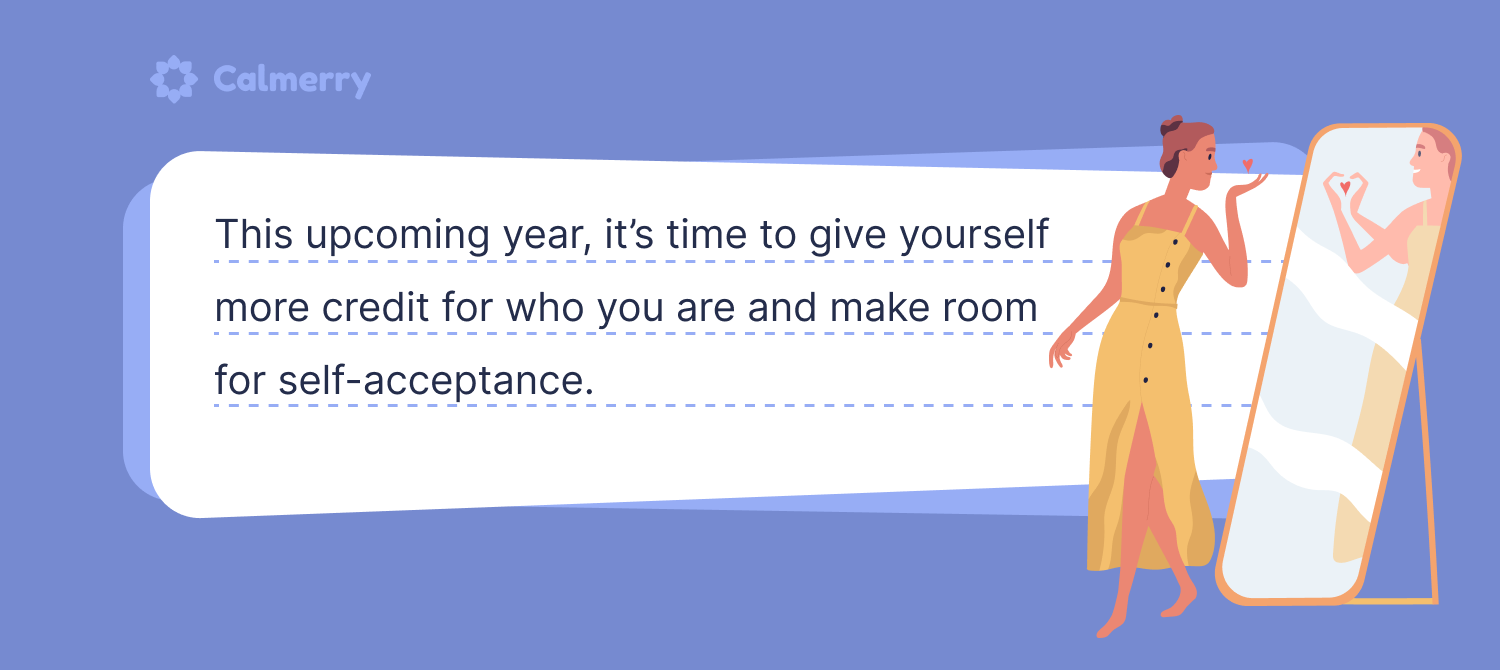
Comparison isn’t always a bad thing. Seeing other people succeed and achieve the same goals we have can serve as a great motivator to help us get where we want to be in life.
But many people take the comparison too far and conclude they’re less worthy just because they don’t reach their goals by a certain age. This upcoming year, it’s time to give yourself more credit for who you are and make room for self-acceptance.
We all follow different paths in life, and constantly comparing yourself to how others are doing will only lead to self-doubt.
As cliché as it sounds, it helps to have faith in the Universe and focus on simply enjoying the journey – the one that is unique to you.
7. Dwelling on the past
We all have one or two things we wish we had done differently in the past. But some of us tend to dwell on what could have been more than others.
If you frequently replay the past in your head and fail to learn from the unpleasant experiences, you may be reopening old wounds, which might negatively affect your mental health and contribute to anxiety.
Whenever you start to ruminate, practice telling yourself that you accept the negative emotions it generates and that the past can’t be changed.
It also helps to have a positive mantra, such as “Whether it’s good or bad, it’s always a lesson to be learned.”
8. Making time for people who don’t prioritize you
Being alone can be a terrifying prospect, especially during the holidays when everything seems to come in pairs and everyone seems to be dating.
But if you constantly make time for people who don’t give you the same amount of effort, you won’t have an opportunity to meet someone who truly values you as a person – and essentially, you’ll be missing out on making a genuine connection.
Accept that whoever is meant to be in your life will find their way into it. Letting go of relationships that aren’t working and focusing on those who nourish you is a great way to practice self-care.
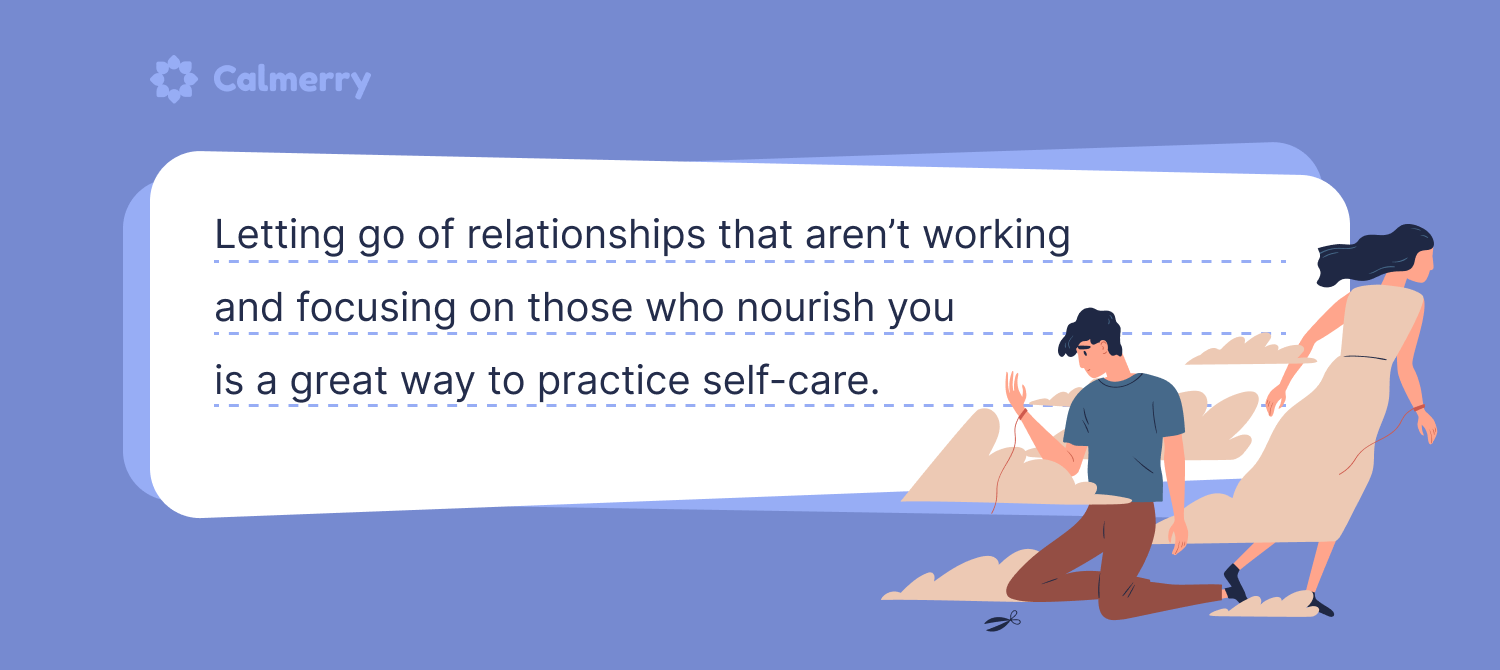
9. Prioritizing work over mental health
As society often tells us that we have to be productive all the time, it’s difficult not to equate our self-worth with success. It makes many people fall victim to neglecting their mental health for the sake of their jobs.
Even if you love what you’re doing, maintaining a life-work balance is the key to happiness, as it can help prevent burnout.
Apart from the pressure to be always at your best, a lack of boundaries at work is another reason why you might forget to prioritize your well-being.
When you don’t know how to say “no” to your boss, you might make yourself available all the time and take on new projects even when you can barely cope with the number of tasks you already have.
As your New Year’s resolution, make the decision to listen to your body and mind and let yourself rest when you need it.
10. Delaying seeking therapy when you need it
Some people refuse to get help because it feels like a confirmation that they have a problem, and it can be terrifying to admit it to yourself.
However, an important part of self-care is engaging in strategies that can improve your mental health. And therapy is a great way to do that.
Even if you don’t feel depressed or don’t think you suffer from any diagnosable mental health disorder, talking to a mental health professional can be beneficial in terms of self-growth, resilience, and increasing self-awareness.
Additionally, a therapist can help you make your own bad habits list to work on, help build healthy ones, and lessen the pressure associated with sticking to your new goals.
So, Calmerry wishes you many positive changes in your upcoming year!
online therapy
live video session

